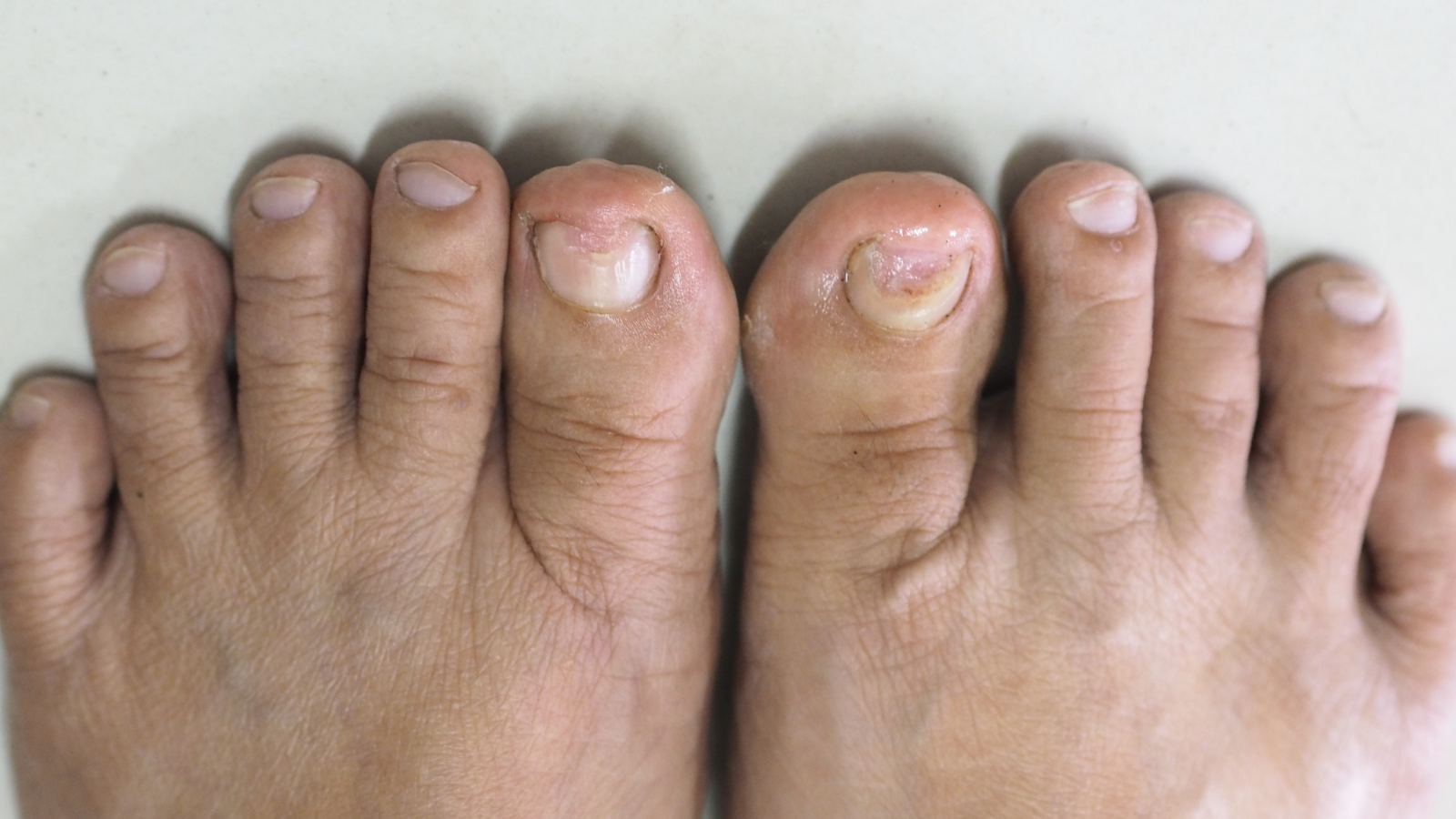Are you suffering from a fungal nail infection?
It is more common than you think! Around 80% of the population will experience a fungal infection at some point in their lifetime, and at any given moment, about 20% of people are dealing with this pesky problem. Whether you’re gearing up for sandal season or looking to resolve a long-standing issue, we’re here to help.
Fungal nail infections, known as onychomycosis, can be both unsightly and uncomfortable. Thankfully, with the right care and attention, you can improve the look of your nails. Read on to learn more about how to recognise, treat, and prevent fungal toenail infections.

What are the signs of a fungal nail infection?
If you’re noticing changes to the appearance and texture of your toenails, it could be a sign of a fungal infection. Here are some common symptoms:
-
Discoloured nails: Healthy nails should be pinkish and semi-transparent. If your nails are turning yellow, brown, or an unusual shade, it could be a sign of fungus.
-
Yellowish or brown nails: A yellow or brown tint often indicates the presence of a fungal infection. This discolouration may start at the edges and spread across the nail.
-
Thick and hard-to-cut nails: Infected nails often become thicker, making them more challenging to trim. This thickening can also cause discomfort when wearing shoes.
-
White and crumbly nails: The surface of the nail might become brittle or develop a chalky white texture, causing pieces to break off easily.
-
Streaks or spots on the nail: Fungal infections may present as white or yellow streaks running along the nail or as distinct spots.
If you’re experiencing any of these symptoms, it’s worth seeking professional advice to confirm the diagnosis and explore treatment options.
What causes fungal nail infections?
Fungal nail infections occur when fungi, often dermatophytes, invade the nail bed. These fungi thrive in warm, moist environments and can easily spread in places like communal showers, swimming pools, and gyms. Other factors that increase your risk include:
-
Wearing tight or non-breathable footwear
-
Having sweaty feet
-
Poor foot hygiene
-
Previous injuries to the nail
-
A weakened immune system
- Biomechanics of the feet&/lower limb

How can fungal nail infections be treated?
Treating a fungal nail infection effectively requires patience and consistency. Some common treatment options include:
-
Topical treatments: Over-the-counter antifungal creams, gels, or nail lacquers can help, especially for mild infections. These are applied directly to the nail and surrounding skin.
-
Oral antifungal medications: For more severe infections, a healthcare provider may prescribe oral antifungal medications. These are often more effective but require a longer course of treatment.
-
Laser therapy: Advanced treatments like laser therapy can target the infection and promote healthy nail regrowth. This option is growing in popularity due to its effectiveness and non-invasive nature.
-
Professional debridement: Visiting a podiatrist for professional cleaning and trimming of the infected nail can help reduce discomfort and speed up recovery.

How can you prevent fungal nail infections?
Prevention is always better than cure. To reduce your risk of fungal nail infections, follow these tips:
-
Keep your feet clean and dry: Wash your feet daily and dry them thoroughly, especially between the toes.
-
Wear breathable footwear: Opt for shoes made of natural materials and avoid wearing the same pair every day.
-
Use antifungal products: Sprays or powders can help keep your feet and shoes fungus-free.
-
Avoid walking barefoot in communal areas: Always wear flip-flops or sandals in places like gym showers, locker rooms, and swimming pools.
-
Trim your nails properly: Cut your nails straight across and avoid cutting them too short.
How can Essex Footcare help?
At Essex Footcare, we specialise in diagnosing and treating fungal nail infections. Our experienced team uses the latest techniques and technologies, such as the ND Yag laser system to provide effective solutions tailored to your needs. From laser treatments to professional nail care, we’re here to help you put your best foot forward.
Don’t let a fungal nail infection hold you back. Contact Essex Footcare today to book an appointment and take the first step toward healthier, happier feet.

